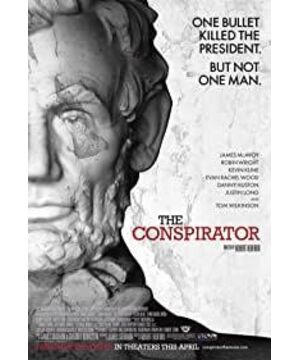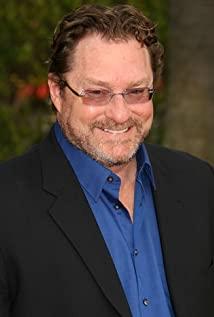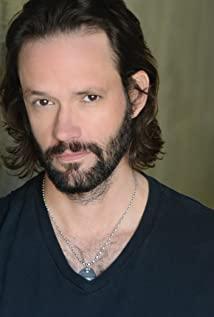/ Cao Kou 2011-10-19
" Killing to pay for one's life" is just the original idea of "one life is worth one life", the fact is that life cannot be repaid, blood debt cannot be washed with blood Clean. It can also be said that this is not a stop to killing, but an encouragement to killing, because it is only revenge and not an effective punishment
than 20th Century Fox, Warner Bros, Columbia, Paramount, MGM, etc. The world's largest film company, "American Film Company" is a newly established film company. The difference from other film companies is that the company has a fixed theme and a clear direction, and aims to shoot more accurate films that restore the true face of America's past history.
This is not the same as Martin Scorsese, who is known as a film sociologist. Although Scorsese's works also point to the truth and truth of the United States, they are more about describing the life of the current crowd. "American Film Company" specializes in American history, especially the history that has been nailed to death, the shadows of the hardcover history books on the shelves under the light or sunlight. It can also be said that this is an archaeological approach to the cinematic approach, not only artistically but also academically.
"The Conspirator" ("The Conspirator" 2011) is the company's "first work". The film recounts the most important chapter in American national history - the assassination of Lincoln. There have been many film and television works about Lincoln himself and Lincoln's assassination, and the whole is an affirmation of Lincoln and a panoramic display of the entire historical event. But this time, director Robert Redford turned the camera on the little man in the incident, Mary Surat, a woman who was believed to be an "accomplice" in the murder at the time, through the judicial battle surrounding the incident. , which reproduces the more real social reality behind a political murder. "What fascinates me the most is that this story is not known, and at the same time it is a story that should be remembered well," Redford said. "For me, what attracted me was to go behind the story. Another story that goes deep into the emotional direction of this story." The film advisory team, consisting of Pulitzer Prize-winning James McPherson, Lincoln assassination expert Thomas Turner, and American historian Colonel Fred Borch, ensured that its academic quality and historical value.
Immediately after Lincoln's assassination, seven men and one woman were arrested and charged with conspiracy to assassinate the President, Vice President, and Secretary of State of the United States. The only woman charged is Mary Surat, 42, who owns a boarding house. It was also here that John Wilcos Booth, the man who shot Lincoln in the back of the head and was killed in the arrest, met with others to plan the assassination. A 27-year-old fighting hero, a former American Civil War soldier and up-and-coming lawyer Frederick Aiken, took on the task of defending Surat before a military court with great reluctance. Aiken came to realize that it was not fair law and procedure that sentenced Mary Surat to hanging, but a military court without jury and the force of hatred transformed by the national grief of the loss of a great president. "Raging Public Opinion". In addition, the truth of Mary Surat's complicity was also blurred by the interference of hatred and public opinion. In the end, the woman's life and truth were completely overwhelmed by the torrent of hatred and public opinion.
Although the case took place during the American Civil War, and the film also invoked the famous statement of Cicero in ancient Rome that "laws are silent in time of war", this film is not as simple as this sentence, and there are many political problem. For example, does the implementation of justice have to abandon procedural justice? Why do democracy and tyranny sometimes coexist as twins? Is "Murder by Public Opinion" justified? Is it okay to kill for the country?
In the American sci-fi "Ape" series, Caesar, the first-generation leader of the ape who led the rise of the ape family, formulated a great decree, that is, "Apes shall not kill apes". This is obviously an irony and criticism of human history. Human history can be said to be a history of mutual killing. Not to mention the wars where the bones are withering, the so-called peacetime is also aggression, persecution, and endless life and death. It not only refers to murder by crime, but also murder by power. "Life or death" is a Chinese description of power. Although it is naked and bloody, it cannot be denied that it is extremely accurate. The Chinese people's worship of power may be the highest in the world, and all official and folk wisdom is based on this. The group of young people who crowd in front of the government office every year to apply for the civil service exam has explained this tradition and reality, and it has given people a basic understanding of the future state of the country. This will not go into details.
The general state of human law about killing, law, and justice is this: One has no right to kill another, but if you do, we have the right to kill you. The paradox in it has long been revealed. The call to abolish the death penalty is based on a wake-up call to this paradox. "Killing to pay for one's life" is just the original idea of "one life for one life". The fact is that life cannot be repaid, and blood debt cannot be washed cleanly with blood. It can also be said that this is not a deterrent to killing, but an encouragement to kill, because it is only revenge rather than effective punishment.
View more about The Conspirator reviews











